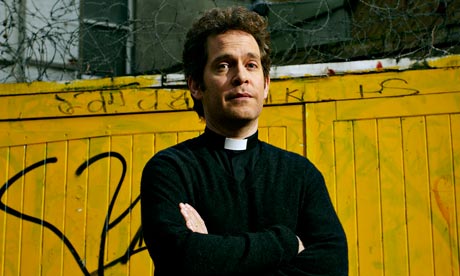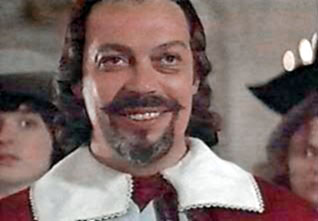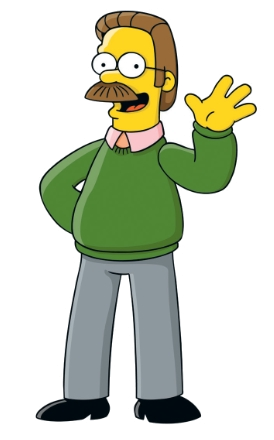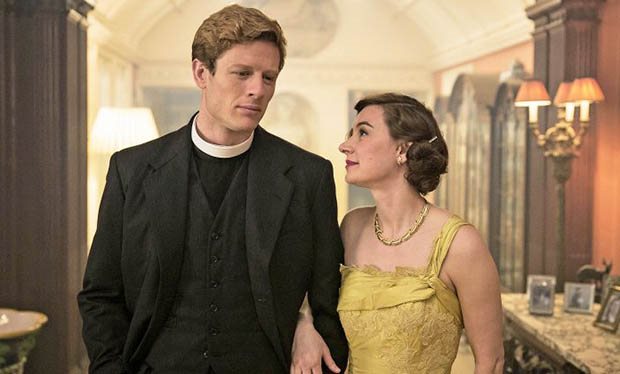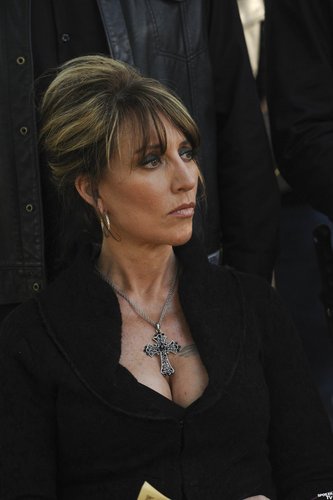Am I understanding correctly that the vast majority of what you are pointing out is about the clergy more than Christians in general?
Yes, because the clergy represents the
visible Christian.
Portraying generic "everyday" layman Christian, however, therein lies the difficulty.
Story structure/plot rules dictate that unless it's 100% crucial to the plot and the story itself, you leave it out. In literature, you have the luxury of getting into the character's head to hear their private ruminations; in film, you have to show it in action. It takes times, seconds on the film, and time is money. You cannot show thoughts. Character's political opinions, religion, high school sweethearts, reading, eating, bathroom habits are not shown unless it has a plot point or the story is about politics or religion, one Christian's personal journey or some such. A protagonist can be a devout Christian, an avid horse rider and a green thumb, but unless it has a point, it's not adressed or even shown on screen ... if you get my drift. James Bond can be a devout Anglican, but we don't really know, since his off-duty quiet time is rarely and only shown when it's relevant to the Bond-ish action plot.
Similarly, keeping in mind that 75% of Finns belong to the Evangelical Lutheran Church and 90% of our teenagers choose Lutheran confirmation, I assume that the generic Finnish film protagonists reflect this and have a background similar to mine: they are parish members and believe in God, even if their occasional going to the Sunday Mass is not shown on screen. These characters are not portrayed as Christians per se.
Therefore I think that the representations of the clergy = Christian in general, in films.
That you mentioned The Three Musketeers is interesting as I see a trend there. In the book Richelieu is a more complex character and honestly far removed from the almost one dimensional evil person he has mutated to in more recent films. After all near the end of the story (book) it is Richelieu who gives D'Artagnan a lieutenants commission in the Musketeers.
That's an interesting observations and I agree. Film (moving picture), literature, and movie or state adaptations are totally different medium, though. In literature, you can be privy to the protagonist's private thoughts; generally, you have hundreds of pages to engage with the POV characters. In film and movie adaptations, the script clocks at page 110 or 120, typically, at the expense of complexity. A character can be a lot of interesting, complex things, but you can only show in the final cut the one most crucial side of a character. TV series, usually, if they make it past the first season do-or-die cut, start showing more character facets and development in season two.
Oh and on the foolish country pastors, do some of them have some good qualities? Especially in older stories. I'm starting to wonder down a different line than I started on, thinking that perhaps stock characters are losing their depth and things like a foolish country pastor, who in the early versions was still shown as caring loses the redeeming traits in more modern renditions. (And totally off my original track that this might be happening to all sorts of stock characters, Christian and not).
Maybe it's our rather solemn Lutheran traditions, but unless those foolish pastoral pastors are there for a comic relief alone, they are quite often the instrument that brings down the struggling and "fallen" heroine. In these films, the audience's sympathy is on the heroine's (or hero's) side: s/he's had one lapse, has repented and is trying to start anew, but the establishment/authority typically a country pastor or vicar won't let her spoil his flock. As I said, this is a Finnish & Nordic (Lutheran) thing. I don't see it NA films and TV, but I do see something somewhat similar in some British/Anglican films & TV.
And perhaps to some degree it is the almost standard anti authority meme.
Absolutely. It's also a proto/feminist "meme". The country parish pastor, of course, represents also the patriarchal establishment.

